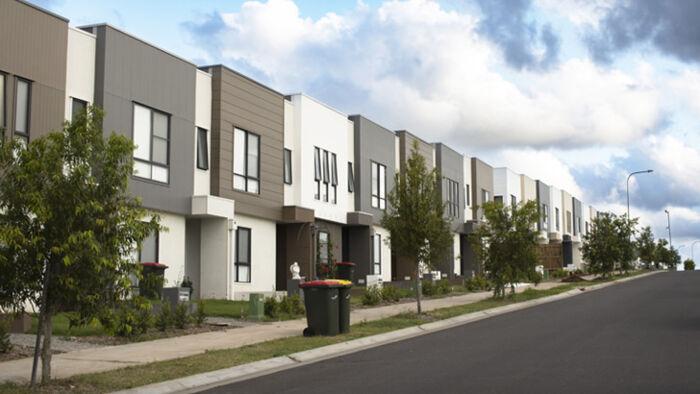Affordable housing is now beyond reach in all Australia’s eastern capitals, according to new analysis released by the Greens, with the average annual salary needed to buy a home without financial stress $164,400.
There are just two capitals – greater Perth and Darwin – where the cost of a unit would not put the average earner under housing stress, according to the Parliamentary Library’s analysis of data from the Australian Bureau of Statistics and CoreLogic.

Max Chandler-Mather, the Greens’ housing spokesperson, said the figures showed the system was “broken” and that home ownership had now become an “impossible dream” for millions of Australians.
The data, which assumed prospective buyers had a 20% deposit and would sign up to a variable rate mortgage of 6.49% over 25 years, showed there were no capital cities in Australia considered affordable for single-income homebuyers.
READ ALSO: High Cost Of Building Materials In Nigeria And How It Affect Property Development
The analysis deemed housing affordable if repayments represented less than 30% of income.
The highest median sale price is for a house in Sydney sits at $1.36m while the median sale price for units in the New South Wales capital is $767,250. The analysis suggests for someone to afford the monthly mortgage payments and not be under housing stress, the household would need a $272,000 upfront deposit and to be earning $293,578 a year for a home. For a unit in Sydney, it’s a salary of $165,623 a year and deposit of $153,450.
The average yearly earnings for those in Sydney stands at $98,353, according to the Australian Bureau of Statistics’ data from November 2023.
In Melbourne, where the average yearly salary is $96,621, a household would need to bring in $189,962 a year for a home or $133,837 a year for a unit to avoid financial stress. Buyers would also need to stump up with deposits of $176,000 for a home or $124,000 for a unit. The analysis assumes that a mortgage holder has a 20% deposit and is offered a standard variable rate mortgage of 6.49%, paying both principal and interest. Affordable housing is when repayments are less than 30% of income.
Perth and Darwin buck the trend of unaffordable housing for units, but not homes, according to the analysis.
Someone earning the average yearly salary – $95,306 – would require an income of $83,648 a year in Darwin to comfortably pay back their unit after putting down a $77,500 deposit, while a home in Top End would need a higher salary of $124,339 with a $115,200 deposit.
Chandler-Mather released the minor party’s policy last month, urging the federal government to ditch generous concessions for property investors.
The Greens want to see negative gearing and the capital gains tax discount pared back and have threatened to hold Labor’s Help to Buy shared equity scheme hostage in the Senate over it.
Our Australian afternoon update breaks down the key stories of the day, telling you what’s happening and why it matters
READ ALSO: Global Affordable Housing Shortages Can Harm Migrant Reception and Integration
Negative gearing allows investors to claim tax deductions on rental property losses, while the capital gains tax discount halves the amount of excise paid by people who sell assets that have been owned for 12 months or more.
The first-term Queensland MP also unveiled an ambitious $12.5bn housing policy in March, promising 360,000 affordable homes would be built over five years for Australians to rent or buy if the Greens took the helm.
Chandler-Mather said the federal government needed to stop the tax handouts to fix the housing crisis.
“When you need to earn $186,000 a year and have a $173,000 deposit to buy a house in a capital city in Australia, then you know the system is broken,” he said.
“First home buyers are losing at auctions to property investors who keep pushing up the price of housing with their tax handouts from Anthony Albanese.
“The only way we are going to fix this crisis is if Labor finally works with the Greens to phase out the massive tax handouts for property investors, like negative gearing, that are denying millions of renters the chance to buy a home.”



